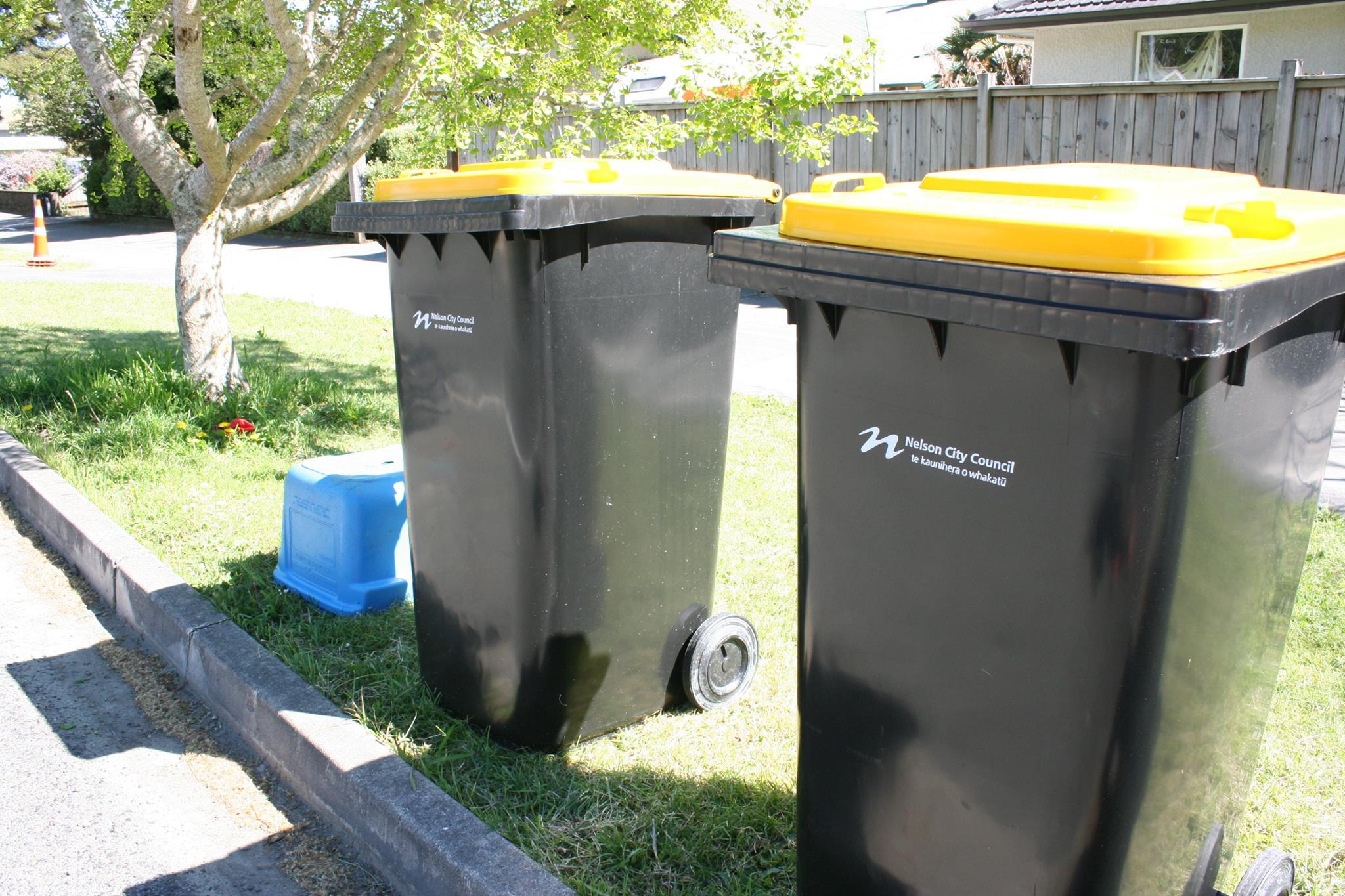Nelson Tasman ahead of the recycling curve

From 1 February, a new set of standardised recycling guidelines were rolled out nationwide. However, Nelson Tasman has been using these guidelines since July 2020. Photo: Nelson City Council.
Nationwide rules to what you can put in your recycling bin changed last week, but Nelson and Tasman will notice nothing new as we have been following the new guidelines since 2020 - and we seem to be complying.
In December 2023, an audit of recycling bins was completed - and the results were good.
“Bins that were audited had a tag attached - green if it was compliant, yellow if there were one or two incorrect items, and red if there were several incorrect items,” says Nelson City Council’s group manager infrastructure, Alec Louverdis.
Seventy-five per cent of the bins audited were allocated a green tag and only 20 per cent received yellow tags.
“This is a really great result and shows that Nelsonians have a good understanding of recycling do’s and don’ts.”
Council’s waste minimisation adviser, Karen Lee, says there are two “really easy” habits you can adopt that will mean your bin is always compliant.
“Get the plastics right, and make sure items are clean. Contamination from dirty packaging is the biggest frustration and cause of concern with recycling. Look at the number on your plastic items.”
Commonly used containers such as milk and soda bottles, shampoo bottles, large yoghurt containers, some meat trays, and berry punnets are usually made of plastics 1, 2, and 5 and are good to go.
“These plastics are the most widely used plastic items in New Zealand and have good processing options. However, some plastic items like packaging made from plastics 3, 4, 6, or 7, plastic cutlery and plastic cups cannot be recycled. Soft plastics like bread bags, chip packs, and glad wrap cannot be recycled.”
Soft plastics can be taken to soft plastic recycling drop-offs at most supermarkets.
Karen says people should rinse off bottles, cans, and tins to ensure that recycling is free from food scraps. Take off lids and pop them in your normal rubbish and break down your cardboard boxes.
“If we all follow these guidelines, we ensure that items that can be recycled are recycled. Thankfully Nelson is already ahead of the curve and doing a great job.”
Councils across New Zealand have previously had different rules about what can and cannot be accepted in their kerbside recycling services. From 1 February, a new set of standardised guidelines were rolled out nationwide. However, Nelson has been using these guidelines since July 2020.
Nelson Tasman already meets the national standards by collecting plastic containers 1, 2, and 5, cans, glass containers, and paper/cardboard. Lids are problematic and continue to be excluded from kerbside collections.
“Lids can trap liquids and foods; they’re also usually too small to make it through the sorting process,” says Karen.
“They form a tiny percentage of our overall recycling volumes and leaving them out ensures that the bulk of recycling is done well.
“There’s a blanket rule, no lids. Whether it’s the plastic lid from your 2L ice cream container, the metal lid on your jar of gherkins, or a small lid on a milk bottle, no lids go into the recycling bin.”
There are a couple of items on the “cannot recycle list” that may surprise some people, according to Karen – including coffee cups.
“The material you can feel is cardboard, so people assume this must mean it's recyclable. But it’s made of a composite of plastic and paper, two materials that cannot be separated, so therefore cannot be recycled. It’s also contaminated with coffee and milk residue. Some types of coffee cups are compostable, but the best way to reduce waste is to use a reusable cup.”
